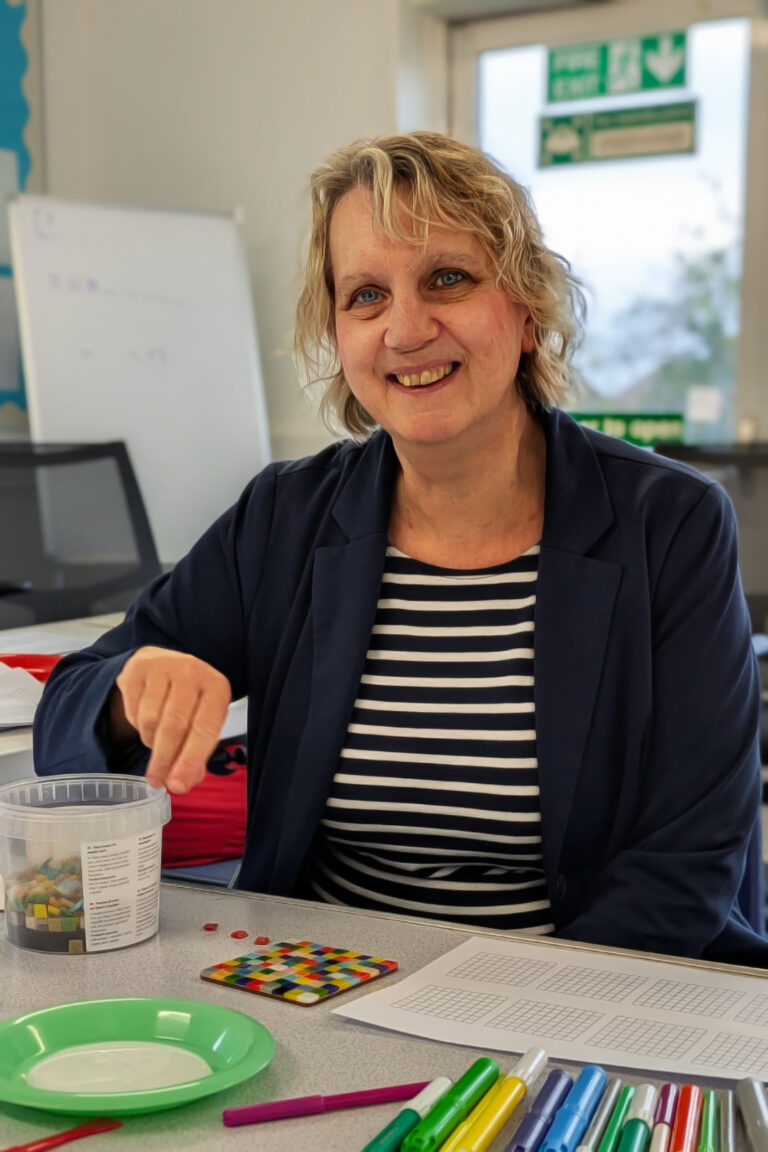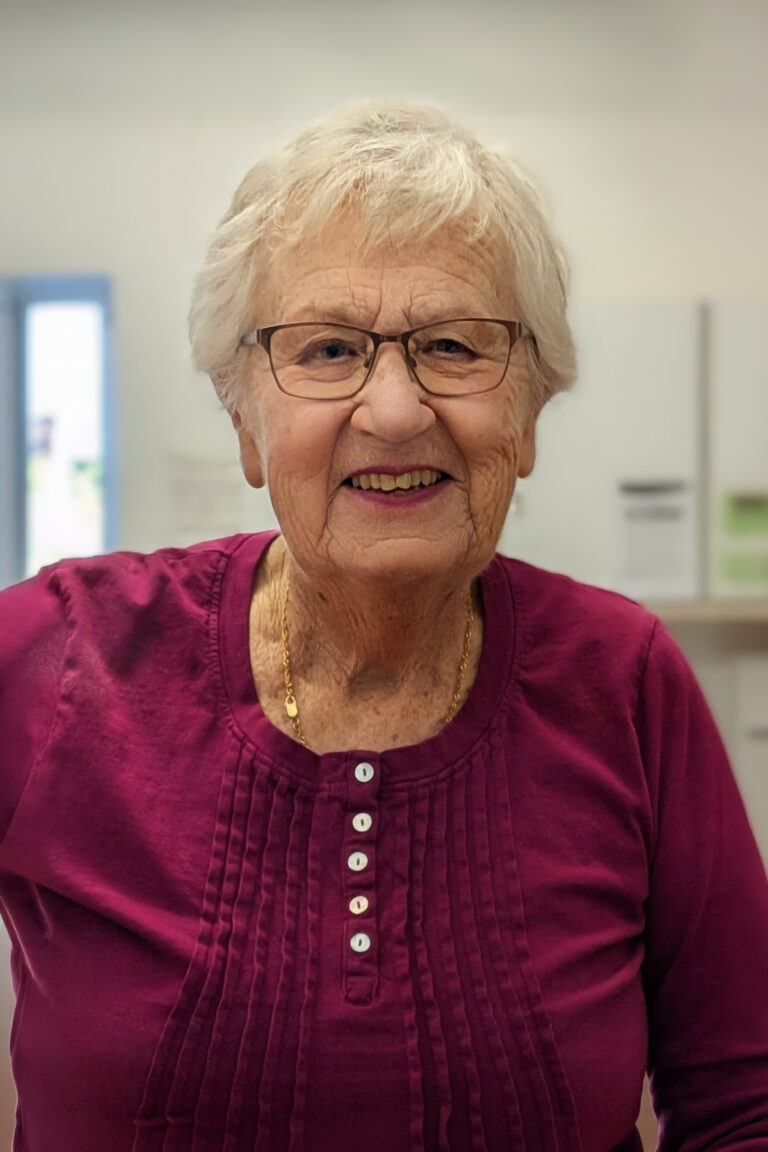I volunteer with the Witness Service, which operates across England and Wales. It began in 1994 with a very clear purpose: to make sure witnesses giving evidence in a criminal trial are not left to navigate the process alone.
Most of the people I meet have never been inside a court building before. To them, it’s a place that only exists on television. They’ve watched dramas where barristers shout, where witnesses are torn apart, and where the judge looks impossibly stern. By the time they step through the doors, the fear is already heavy on them. The reality of court is different, but the fear is very real. My job is to be a calm, steady, human presence. Someone to take the sting out of what can feel like an overwhelming ordeal.
Before this, I had volunteered for 24 years with Action Medical Research. That meant decades of fundraising — fairs, raffles, tin-rattling, leaning on friends. It mattered, but eventually I reached a point where I wanted to see the difference myself, not just send off cheques and trust the impact was happening elsewhere. My sister was volunteering with the Witness Service in Oxford. She encouraged me to try. I thought, “Well, I could do that here.” I signed up for training in Didcot — four intensive days — and then joined the office at Wycombe.
At first, I did two days a week in the office, but soon I moved into Outreach work. That’s a separate part of the service, supporting very vulnerable witnesses. These are people referred by the police, the CPS, outside agencies, or sometimes they refer themselves. They might have health issues, learning difficulties, or disabilities. They might be at significant risk. They may be traumatised, very young, or very isolated. Sometimes they need intermediaries — people who step in and help the witness explain to the court what they are trying to say. My role is to sit beside them, prepare them, and make sure they feel they can cope on the day.
I’ve now been with the Witness Service for nine years. When I take on a case, I commit from the first preparation meeting through to the trial itself. It starts with being given the referral and the trial date. If I know I can’t do the trial date, I won’t take it on, because consistency is everything. It’s no good building trust with someone if I can’t be with them when it matters most. Sometimes I prepare a witness but another volunteer sits with them on the day. But wherever possible, I stay with them from start to finish.
Preparation often begins with a call, sometimes a Google Meet. I’ll ask what they are most anxious about — is it family pressure? Facing the defendant? Recriminations from their community? Just not knowing what to expect? Whatever it is, we talk it through. Then I offer a pre-trial visit. I walk them through the court building before the day. I show them the waiting room, the loos, the courtroom with no one inside. I point out where the magistrates sit, where the barristers stand, where they will give evidence. Even that small act changes everything — the fear of the unknown loses its grip when someone has already seen it, already stood in the box, already breathed in the space.
It’s not just the big fears we handle. Sometimes it’s small, unspoken things. I remember one woman holding her statement awkwardly, eyes down, clearly uncomfortable. Eventually she admitted she couldn’t read it. She was too ashamed to say so. I went to the prosecutor, asked for permission, and then sat with her, reading it together. That’s what we do — notice the quiet difficulties and quietly make sure they don’t derail the process.
The truth is, witnesses carry enormous weight. They have often lived with their trauma for months, even years, waiting for the case to come to trial. Many believe it’s their fault the case exists at all — that they dragged their husband or wife to court, that they ruined their children’s lives, that the whole thing rests on their shoulders. I always explain: it was not your decision. A crime was committed. The police and the CPS decided it was serious enough to prosecute. The justice system chose to bring it to trial. This is not your burden to carry.
Of course, it isn’t always straightforward. Some cases collapse because the defendant doesn’t turn up. Sometimes it’s because evidence is missing — a photograph, CCTV footage, a vital piece of paper. Imagine a witness preparing for months, psyching themselves up, sitting in that waiting room — only to be told after hours of waiting, “The case can’t go ahead today.” Watching them deflate is heartbreaking.
The work is emotional. You sit beside people who are reliving their worst moments, forced to answer questions about the trauma they’ve tried to box away. Even the strongest witnesses can crumble. People say, “I won’t cry.” I tell them, “You might — and that’s okay. If you do, we’ll step outside, have a glass of water, take a breath. Then we’ll go back in.”
When it gets heavy for me, I draw a line. I remind myself I’ve done my part. Then I go home, step into my garden, and let it go. That’s how I cope. I know I cannot do more than my remit allows — and that’s what keeps me steady.
What’s most rewarding? The smile at the end. The relief. The gratitude. Not every case results in a conviction, but if a witness leaves saying, “Thank you, I couldn’t have done it without you,” I know I’ve made a difference.
Volunteering has changed me. I don’t judge people anymore. You can’t. You never know the truth of someone’s life by looking at them. I’ve learned that everyone deserves support, dignity, and the chance to be heard. I’ve also grown in confidence myself — because to help someone through, you have to project calm and strength, even when you’re not sure yourself. If I say, “We’ll get through this day, you and me,” I mean it. And they believe it.
I’ve been volunteering in one form or another for 33 years — 24 with Action Medical Research, and now nine with the Witness Service. I still believe in what I do. I don’t see myself stopping. I may take breaks for family or life, but I always come back. Because this work isn’t just about helping others. It’s about reminding yourself what it means to stand beside someone when they need it most.
If I had one piece of advice for anyone thinking of volunteering? Do it. Especially if you feel stuck looking inward. Volunteering forces you to look outward. It changes your perspective. It lifts you out of your own world and into someone else’s — and that’s where you find meaning.

